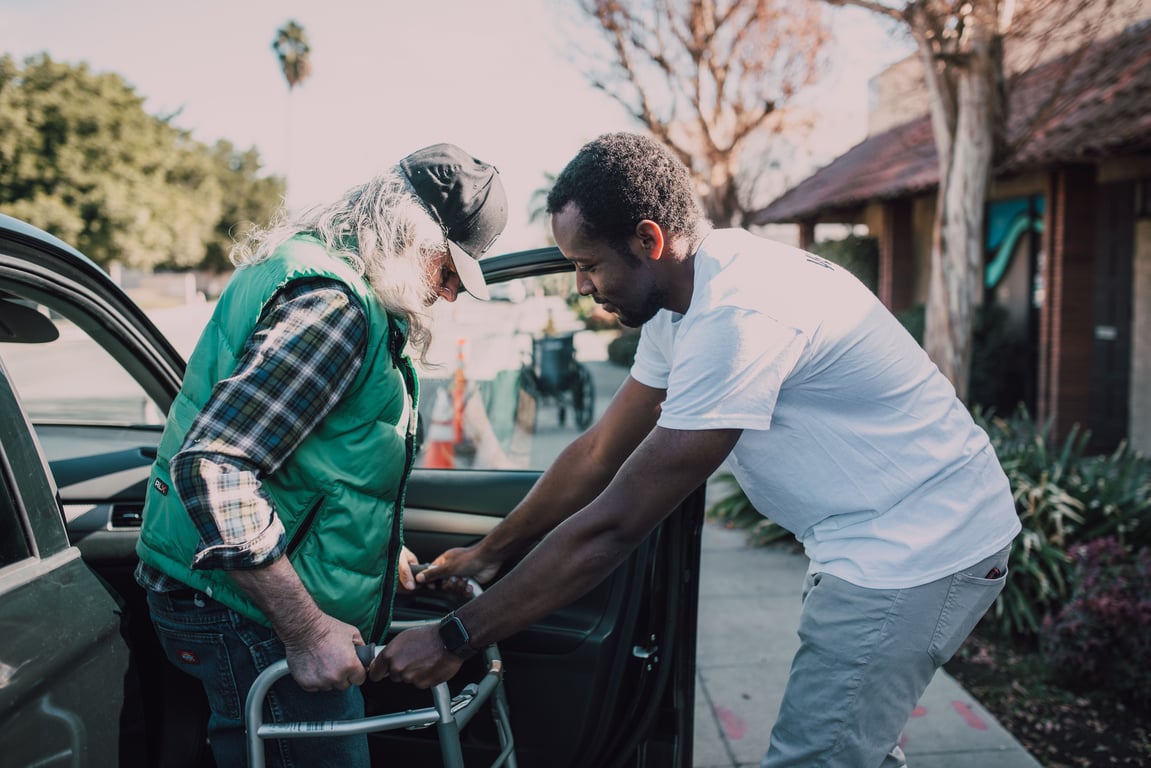Giving is one of the most effective and proven ways to boost our well-being. For starters, knowing we are making a difference has a positive impact on both our physical health and mental health, and it can even boost our resilience during times of stress. “For many people, caring for others is a fundamental human response to stress,” Emily Greenfield, Ph.D., an associate professor of Social Work at Rutgers, The State University of New Jersey, tells Thrive. “It can benefit others and ourselves, especially under times of threat.”
Arianna Huffington even says that giving can be a form of self-care. “It’s about doing whatever we can to widen the circle of our concern,” she writes. “It’s not just good for the world, it’s good for us.”
So if you’re interested in giving back, but not sure where to begin, here are five ways to get started:
Block out designated giving time
When you constantly feel that you have to juggle your regular workload with acts of selflessness, that balance can begin to feel like a burden — but blocking out “giving time” can help relieve you of the stress. “Chunk your giving into dedicated days or blocks of time rather than sprinkling it throughout the week,” Adam Grant, an organizational psychologist and author of Give and Take,writes in Harvard Business Review. “You’ll be more effective — and more focused.” For example, if you’re having a busy work week but know you’ll have some free time over the weekend, carve out time on Sunday to volunteer for a local food kitchen, or even to help a friend in need.
Think local
When we think of giving back, we might feel the urge to start big. And while there’s nothing wrong with aiming big, you can help yourself by starting small. If giving feels overwhelming, find ways to help within your local community. For example, you might consider contributing some extra groceries to a nearby food pantry or volunteering at a local school. You can feel empowered by the fact that you’re supporting those in your own community.
Send gratitude
Sending supportive emails and texts, or even writing handwritten letters, is a great way to connect and express gratitude — which is an act of giving. Not only does it allow you to reconnect with someone you might have not spoken to in a while, but it is a small gesture that has long-lasting benefits. A simple “thank you” text can go a long way and make others feel seen.
Take time to listen
Simply carving out time to listen to those around us can be a powerful act of giving. Try sitting down with a co-worker and asking them what’s on their mind right now, or call up a friend and offer a listening ear. We often think of giving as a physical act, but being an active and mindful listener can be a powerful way to show your generosity and compassion.
Create a routine of small, helpful acts
You don’t have to sign up for a major week-long voluntourism trip to be selfless. Getting into a routine of performing small acts of kindness around your community or even your office can help boost your mood regularly, and help you feel more fulfilled. “If you help five people every Thursday, you feel you’ve made a difference each week,” Grant says. And finally, remember that you don’t have to give whenever the opportunity arises. “Prioritize the help requests that come your way,” he adds. “Say yes when it matters most and no when you need to.”


